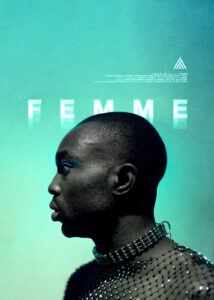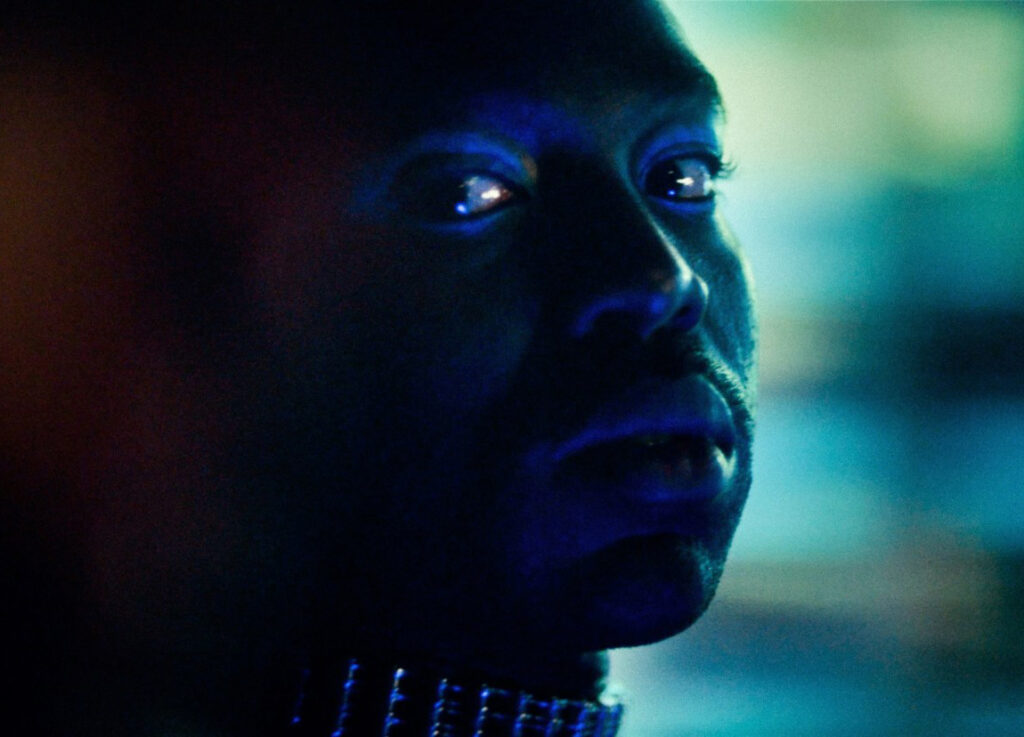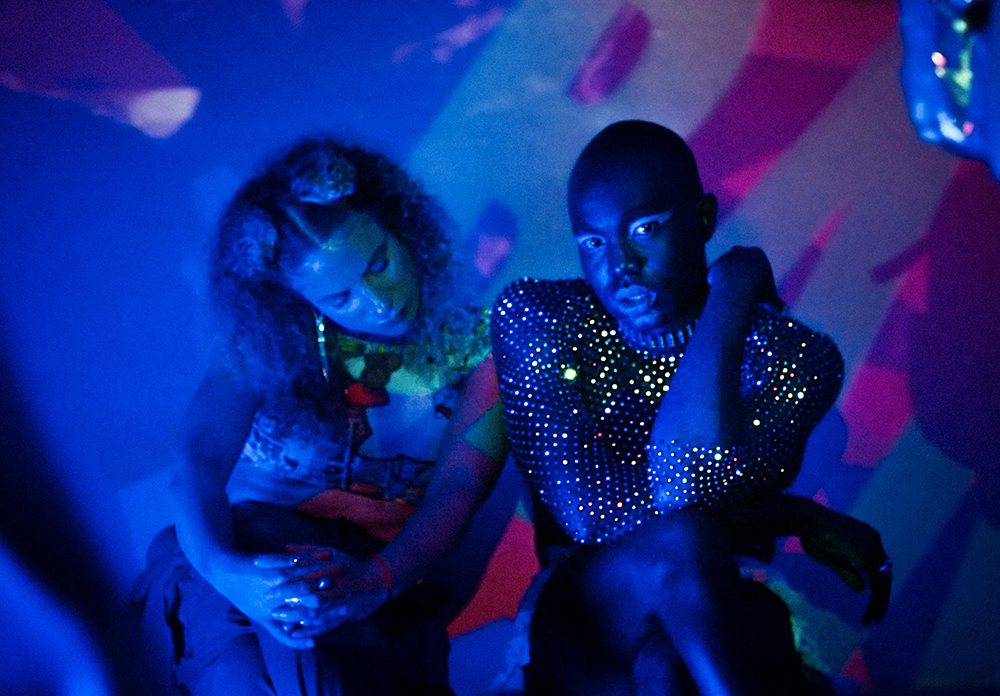Over the course of the 2021 SXSW Film Festival, I had the chance to become aquatinted with many films from the various shorts programs. The animated shorts showed intrigue and style with films such as “Nuevo Rico” and “The Rendang of Death.” The documentary shorts also offered insight; two of my favorite films of the festival were the shorts “Plant Heist” and “The Box.”
Of course, the narrative shorts offered depth and introspection, as one would expect. Films like “Play it Safe” challenged racial stereotypes while “The Nipple Whisperer” used off-the-cuff plot to highlight beauty in images and emotion not often seen in short media.
But lastly, I had the change to watch the film “Femme,” by Directors Sam H. Freeman and Ng Choon Ping. The film challenges our thoughts and minds as it follows an LGBTQ+ protagonist through a night that turns much more dangerous than he’d hoped. This week, I had the chance to sit down with both Sam H. Freeman and Ng Choon Ping to discuss their movie, its effect, and their hopes for SXSW and “Femme” in general.
Hello and thank you for agreeing to this interview. Can you please introduce yourselves for our readers?
We’re Sam H. Freeman and Ng Choon Ping, the writers and directors of “Femme.”
How has your SXSW experience been? Have you found it accommodating for shorts like yours to gain traction?
It’s been amazing! We had multiple platforms to promote the short, and we’ve gotten really great exposure.
Can you tell us about the casting process for this film? Was it hard to find the perfect actor for both Jordan and Wes, or did it come easily? What were you looking for in both actors?

We had the brilliant Dan Hubbard for our casting director, who gave us a deep bench to choose from… [but] pretty much had our hearts set on Paapa [Essiedu] and Harris [Dickinson] from the outset—it felt like a stroke of luck that both of them said yes! We needed the full range of emotions and nuance for both characters, and we got it—Harris’ Wes turns from charm to vulnerability to fear on a sixpence, while Paapa’s Jordan goes through the entire gamut of joy, disappointment, thrill, terror, and devastation all in the space of one night.
What prompted you to make this film? And what is the overarching message that you hope that viewers will take away from it?
The idea began in a personal, gut place for us—the feeling of heterophobia, the anxiety, even fear, that queer people often experience in aggressively heterosexual spaces. The story became what happens when a femme queer character steps out of his world to follow a hyper-masculine character into his. We knew then that we wanted to tell the story through the thriller genre. We’re both fans of late night crime thrillers (particularly the films of the Safdies and Scorsese) but it’s a genre that is almost exclusively the domain of straight protagonists playing out big-boy fantasies. The chance to subvert the genre…to stake our claim on the mainstream by putting a queer protagonist at the heart of it, became our central ambition for the film.
5. Can you tell us a bit about Jordan? What is going through his head during this movie? Early on, while in the club, he seems adventurous but keeps being warned by his friends not to get in with the wrong sort of people. Who do you think Jordan is and what does he want out of this night out?
Jordan is like everyone else. He wants happiness, he wants to feel desired, he doesn’t like to feel controlled. He enjoys the thrill of risky behaviour, he has loads of emotional baggage…like everyone else, he’s just trying to make it through in one piece!
The story became what happens when a femme queer character steps out of his world to follow a hyper-masculine character into his.”sam h. freeman/ng choon ping
I couldn’t help but notice the play on words with the word ‘femme.’ Stranger danger or even the fear or walking home at night alone is something that exists for those in the gay community, but also females as well. Were you trying to make a point about both groups with your picture, or was this a happy coincidence?
We had not intended wordplay! ‘Femme’ here is common slang for gay men who are seen to be ‘feminine-acting,’ as opposed to ‘masc’ or ‘butch.’ That said, we’d be so glad if our film speaks to people of all genders and who experience stranger-danger.
The final shot of the film, with Jordan walking home, still dressed in club attire after the tragic scene he has just left is powerful. I suspect some might view Jordan as a hero, standing up for himself and the gay community. But I felt he was scared and possibly shattered for having to undergo tragedy for something as innocent as unrequited love. Can you comment on this?

The most satisfying kinds of heroes are those who suffer great cost for their triumphs, aren’t they? We did aim for an emotionally difficult ending…viewers of “Femme” have been rather evenly split between those who found it ’empowering’ and those who found it ‘tragic.’
Where was “Femme” filmed? Can you tell us a bit about the filmmaking process? Did you run into any bumps, or was the process a smooth one.
We filmed in London, during a lull in the pandemic lockdown. The day before the shoot, our DoP [Director of Photography] came into contact with someone with Covid and had to drop out. There was utter panic. But then we found another DoP that evening, the god-sent James Rhodes, who saved the day, and more, for us.
Have either of you worked on other projects together before, or is this your first one? Do you have any projects planned for the future.
This is the first film for us, as individuals and as a duo. We’re currently writing a feature based on the world of “Femme.”
Jordan is like everyone else. He wants happiness, he wants to feel desired, he doesn’t like to feel controlled. He enjoys the thrill of risky behaviour, he has loads of emotional baggage…”sam h. freeman/ng choon ping
Do you have any advice for new filmmakers looking to get into the craft?
Although we were new to film, we were not new to story-telling, Sam having come from TV screenwriting, and Ping from theatre directing. We had a strong shared vision of what story we wanted to tell, which informed every step of the process from shooting to post production. So maybe a piece of advice might be: work on getting the story as strong and clear as possible.

